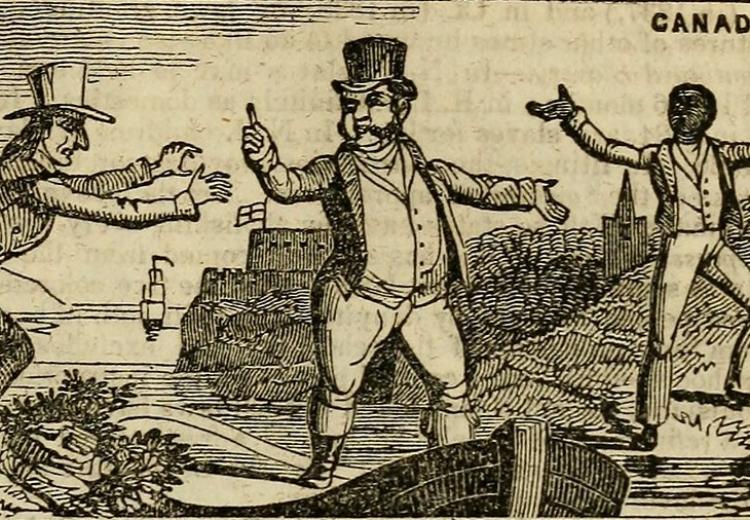Lesson 2: Slavery's Opponents and Defenders

Cartoon caption: "John Bull's Monarchy: A refuge from brother Jonathan's slavery." Cartoon depicting an escaped slave reaching Canada and an American slave holder pleading with John Bull (England) for his return (1836).
When Abraham Lincoln met Harriet Beecher Stowe, author of Uncle Tom's Cabin (1852), he was said to have remarked, "Is this the little woman who made this great war?" Such was the impact Stowe's novel had in exposing the inhumanity of slavery. Selling 300,000 copies in its first year of publication, the book's popularity in the North revealed the growing sentiment against forcing people to live as chattel—human property that could be worked and disposed of practically at will.
Given the success of Uncle Tom's Cabin, one might ask how slavery could be defended as late as the 1850s? Many southerners justified it on social and economic grounds, following South Carolina Senator John Calhoun in calling it a "positive good." Others pointed to the example of Nat Turner, a well-treated, literate slave who instigated a rebellion in 1831 that resulted in the massacre of nearly sixty white men, women, and children before his capture, and the deaths of almost two hundred blacks at the hands of white mobs. To those who feared the emancipation of slaves because of the possibility of retaliation such as Turner's, slavery was indeed the "wolf by the ears," to use Jefferson's expression, that could not be safely let go. This lesson plan will explore the wide-ranging debate over American slavery by presenting the lives of its leading opponents and defenders and the views they held about America's "peculiar institution."
Guiding Questions
What were the arguments against slavery in the antebellum era?
How did supporters of slavery justify the maintenance of the "peculiar institution"?
Learning Objectives
Examine the arguments forwarded by opponents and defenders of slavery.
Analyze the reasons given for and against the morality and legitimacy of slavery under the U.S. Constitution
Analyze the economic arguments used within the debate regarding slavery.
